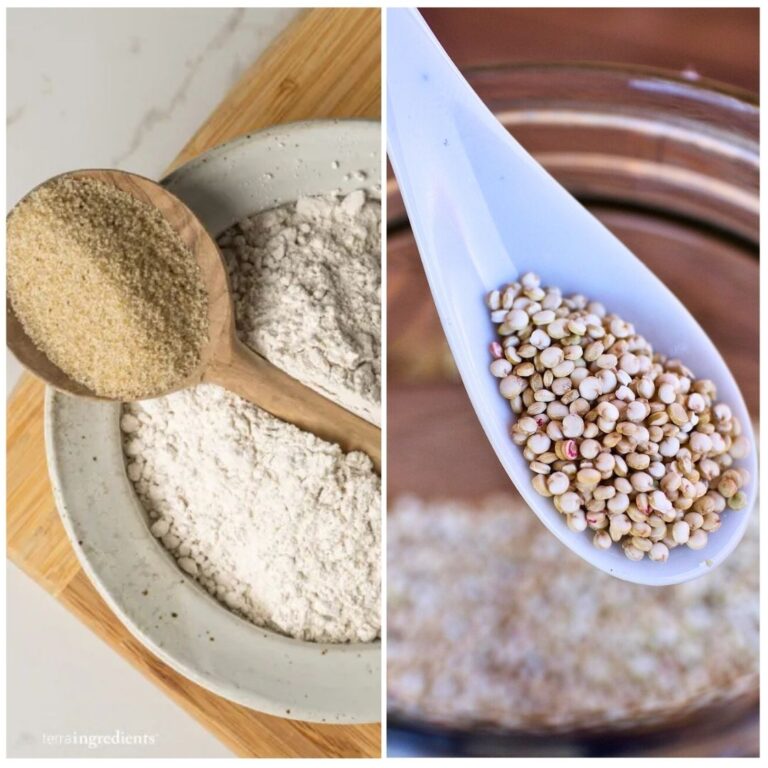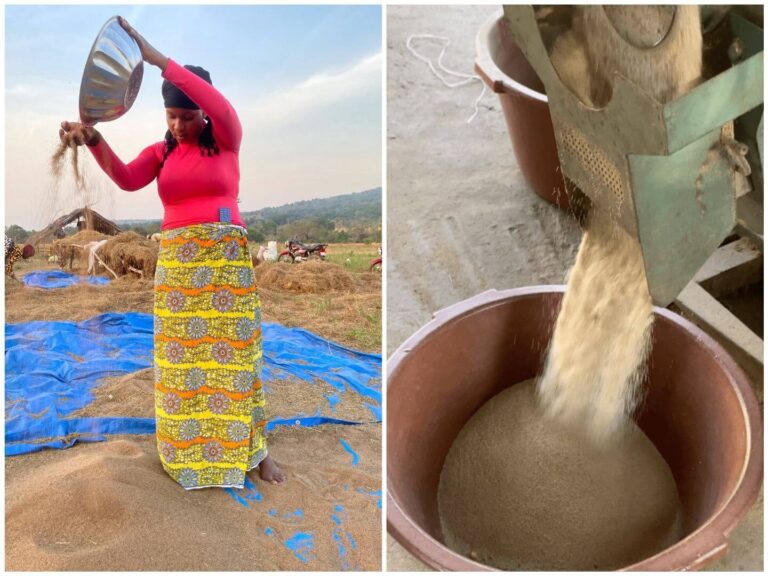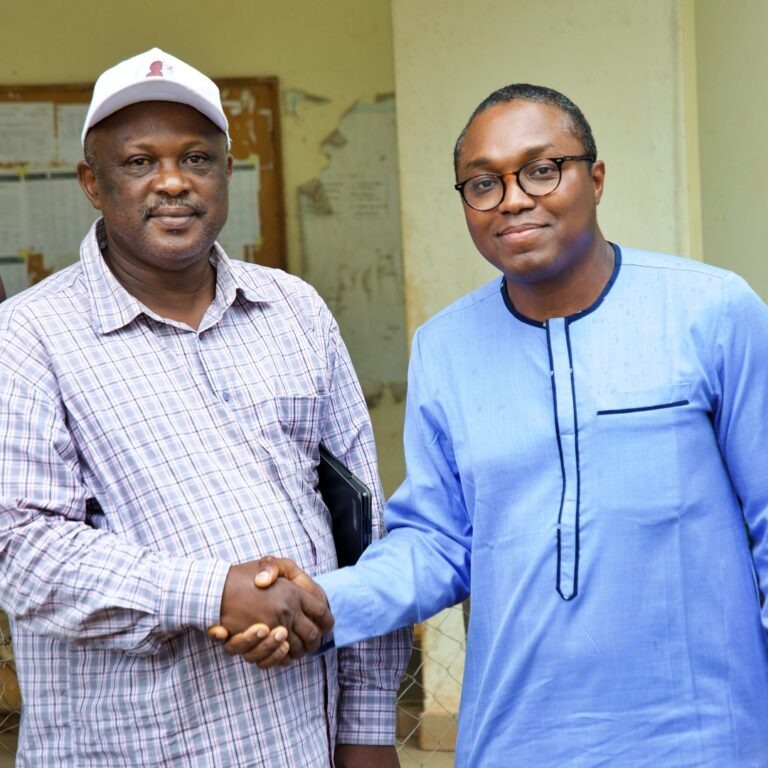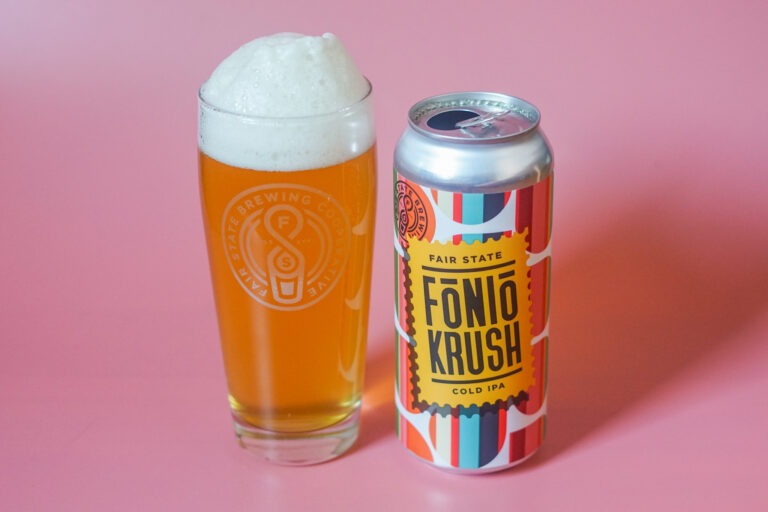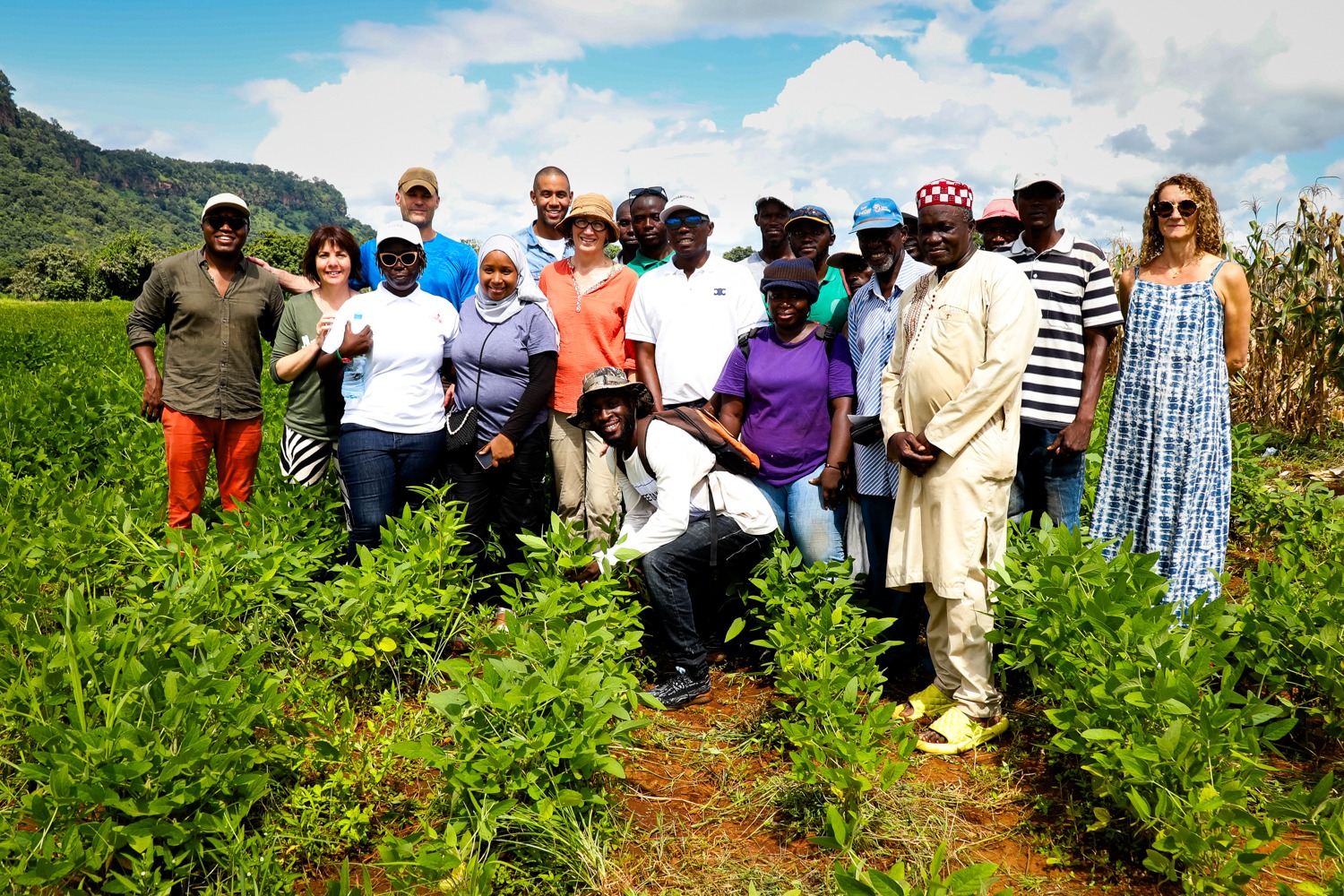
In Guinea’s remote mountains and dusty plains, a quiet agricultural revolution is taking root—one grain at a time. Fonio, one of the oldest cultivated cereals in West Africa, is experiencing a resurgence in local markets and on the global stage. This tiny, nutrient-rich grain, long forgotten by industrial agriculture, is proving that a small seed can sprout a movement with the right model—one built on fairness, transparency, and investment in people.
After launching our fonio initiative in Guinea in 2023, we have already experienced a level of growth and transformation in the region that has significantly outpaced our expectations, however modest it may appear on a grander scale. What started with a small co-op of fonio farmers has quickly become an ecosystem of prosperity that is changing lives in once-dire places.
In 2024, Terra Ingredients, with our farming and processing partners, generated one of the most promising fonio harvests in recent memory in the Koubia region of Guinea. With nearly 800 metric tons produced—far exceeding our goal of 300 tons—we’ve witnessed firsthand how an ancient grain is transforming lives in the present. Most importantly, this success was achieved through ethical business practices, Fairtrade certification, and a deep commitment to community empowerment.
This is a story about more than agriculture. It’s about economic development, gender equity, food sovereignty, and global health. It’s a story of resilience, rediscovery, and rethinking what development in Africa can look like when the farmers are at the center, not the margins.
From Forgotten Fields to an Economic Engine
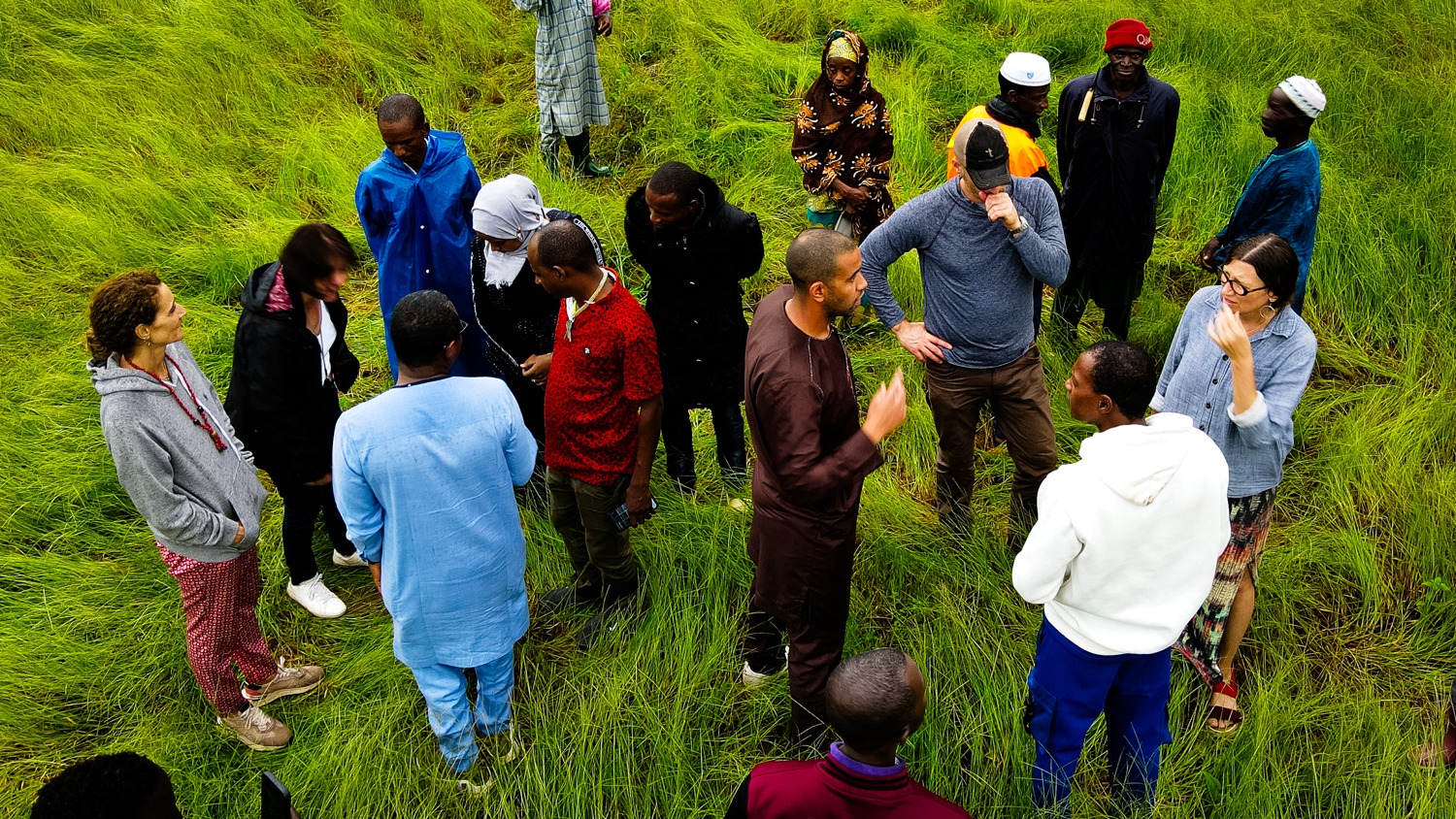
To understand fonio’s comeback, we must start with where many of our farmers began: sustenance farming and informal mining.
“Until recently, in these rural areas, there were no jobs,” explains Osman Diallo, a Guinean native now working with Terra from Oslo, Norway, helping us develop a sustainable and equitable supply chain for fonio. “Young people and women had no choice but to migrate—to cities or even across borders—or to risk their lives in illegal mines.”
While rich in resources like gold, diamond, bauxite, and iron ore, Guinea’s mining regions are fraught with danger. Unregulated mines collapse frequently. Accidents are common, and labor is often informal, unpaid, and unsafe. “The government raids the mines,” Diallo says. “People scatter, but days later, they return. There’s nothing else for them to do for income close to their homes.”
That’s where our fonio program in Guinea, launched late in 2023 and officially Fairtrade certified in 2024, has changed everything. By offering fair wages, long-term contracts, and equipment through village-level farming cooperatives, young people and women are staying—and thriving—in their communities.
Learn more about our Guinea co-operative in our recent article, “Going Against the Grain with Maimouna Diallo.”
“They now earn anywhere from $10, $20, and sometimes even $50 a day, compared to the $1 per day or less they used to earn,” says Diallo. “It’s become more attractive to farm than to leave.”
Building a Fairer Future: What Fairtrade Means on the Ground
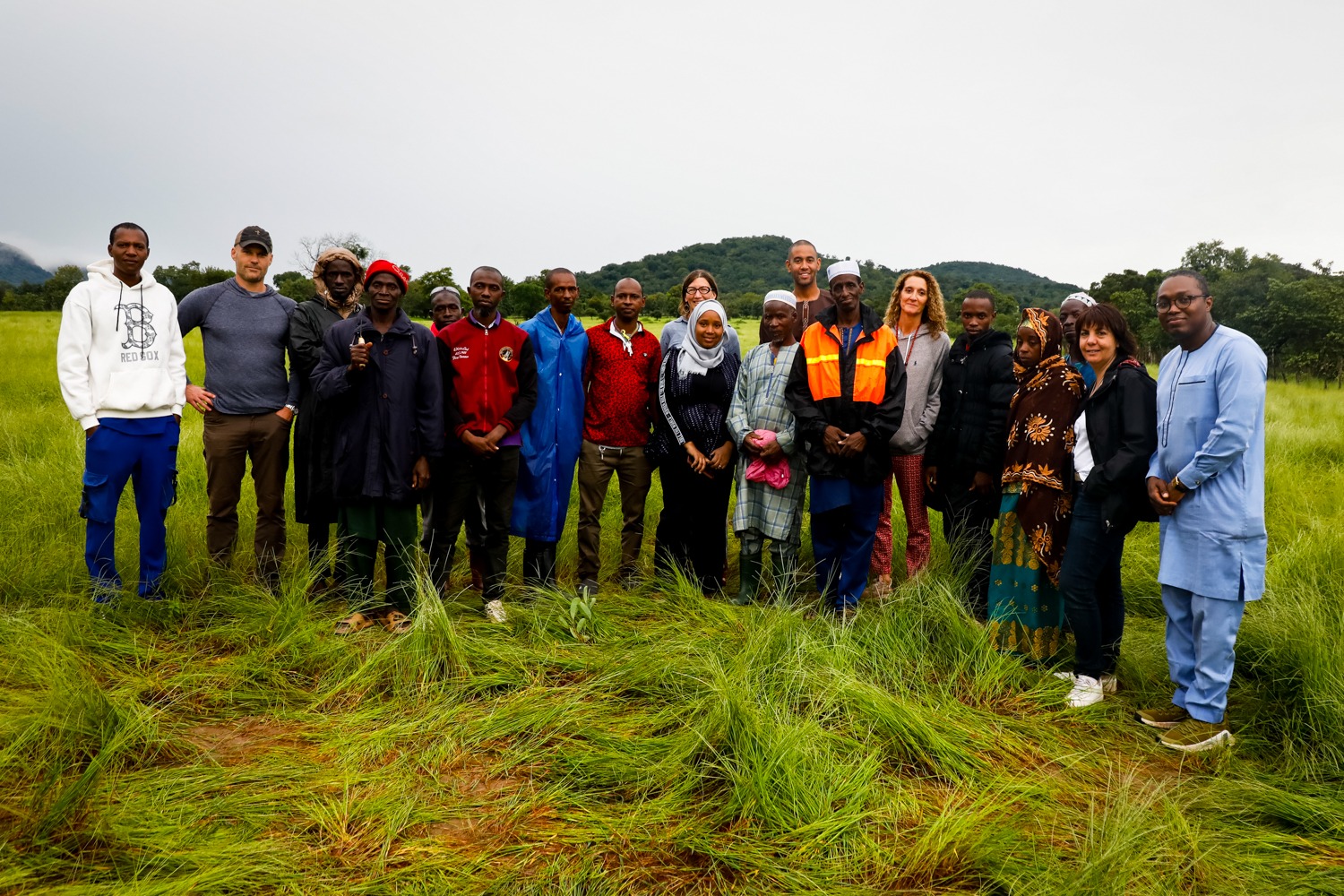
With a large portion of our fonio supply chain in Guinea receiving Fairtrade certification in 2024, Terra goes beyond essential commodity trade. Fairtrade means traceable, transparent payments, equitable pricing, and social premiums that go directly back into farming communities.
In 2024, Terra Ingredients made significant financial investments in co-ops in Guinea. Although relatively modest by Western standards, these investments have had an outsized impact.
In practical terms, our efforts and investments supported more than 1,200 farmers. About 600 of those farmers belong to co-ops directly managed by Terra. The rest are part of our growing network of partners—independent but supported through training, equipment, and shared best practices.
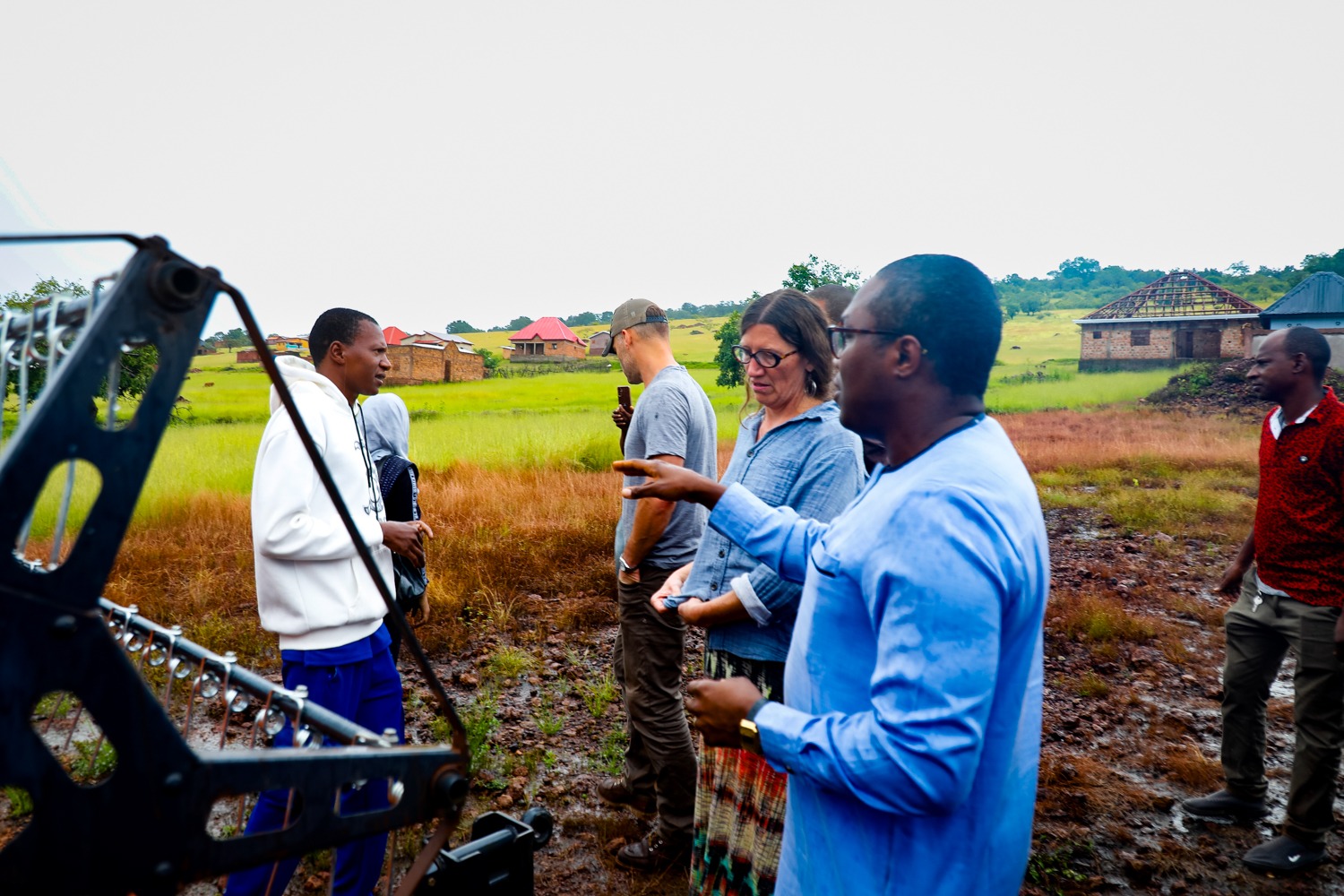
One key benefit for Fairtrade-certified co-op members is the €100-per-metric-ton social premium, paid in addition to our already above-market rates. These premiums are pooled to fund community projects decided democratically by the co-ops, such as schools, solar power stations, and farming infrastructure.
Crucially, we rigorously vet all new farmers before admitting them into the program, ensuring compliance with Fairtrade standards, including zero child labor, transparent bookkeeping, and environmental stewardship.
“Our biggest bottleneck isn’t interest,” Diallo says. “It’s capacity. There’s a long waiting list of villages that want to join, but each must be properly audited. It’s thorough—we interview their kids, their neighbors, we inspect their farms. That takes time.”
Women in the Lead: Redefining Gender Roles in Rural Guinea
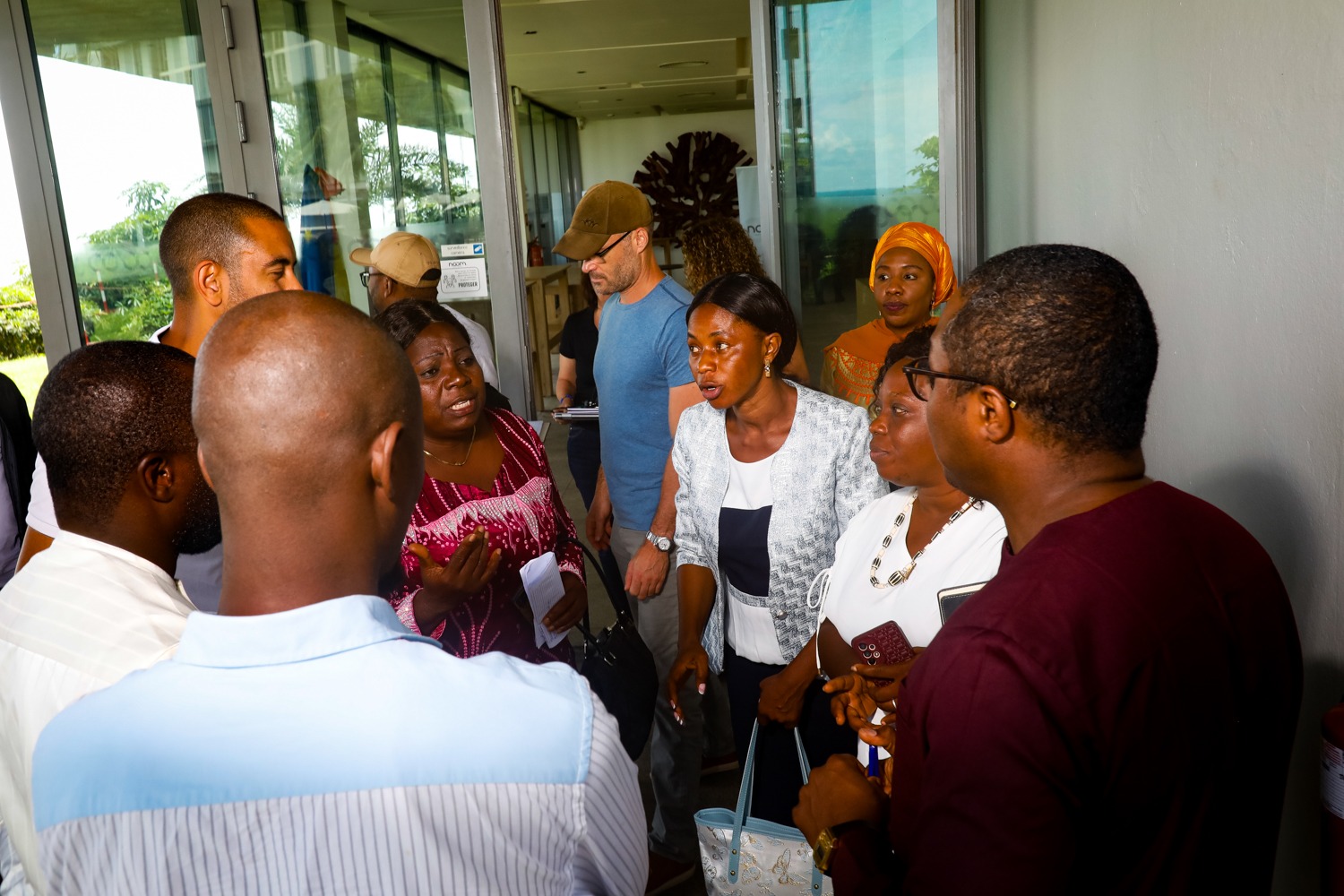
Perhaps the most transformative aspect of our initiative has been the extraordinary rise of women within the farming cooperatives.
In just over a year, the gender ratio in our network flipped from 99% male to 72% female participation. These numbers are remarkable for anywhere in the world, especially in Guinea’s historically patriarchal society.
“When we held the first meeting, only men showed up,” recalls Diallo. “Many weren’t even farming—they just came to speak on behalf of their wives.”
But thanks to influential role models like our co-op leader, Maimouna Diallo, a young Guinean entrepreneur coordinating Terra’s auditing teams, the power dynamics have begun to shift. “She told them, ‘If you’re not farming or here to help, you can go home,’” Diallo laughs. “That moment, and others like it, have inspired dozens of women to join—and lead.”
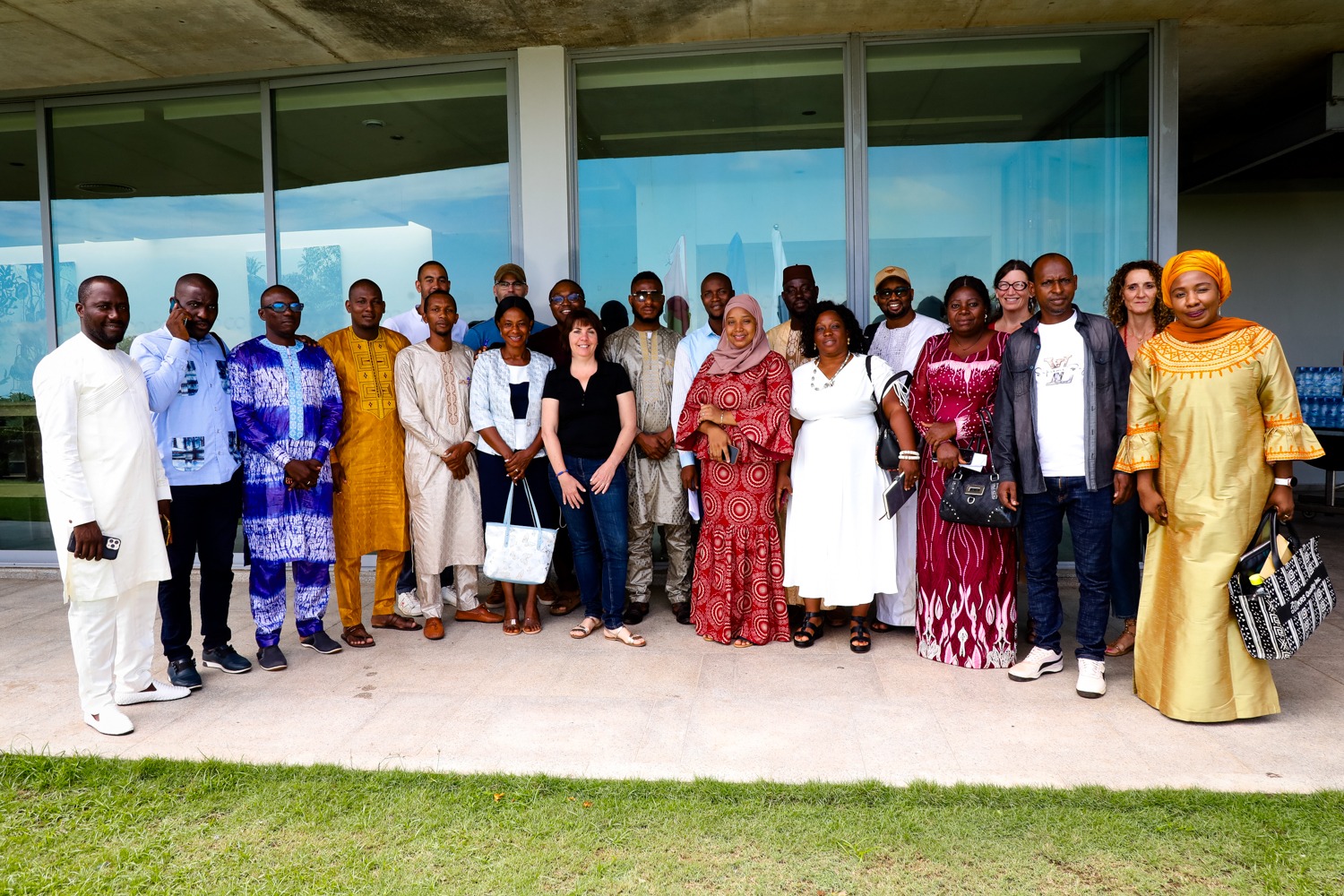
Today, these women are not just farmers—they’re changemakers. They’re building homes with their earnings, managing budgets, sending their children to school, and setting new standards for leadership and independence in their communities.
Investing in Communities and Eliminating Child Labor
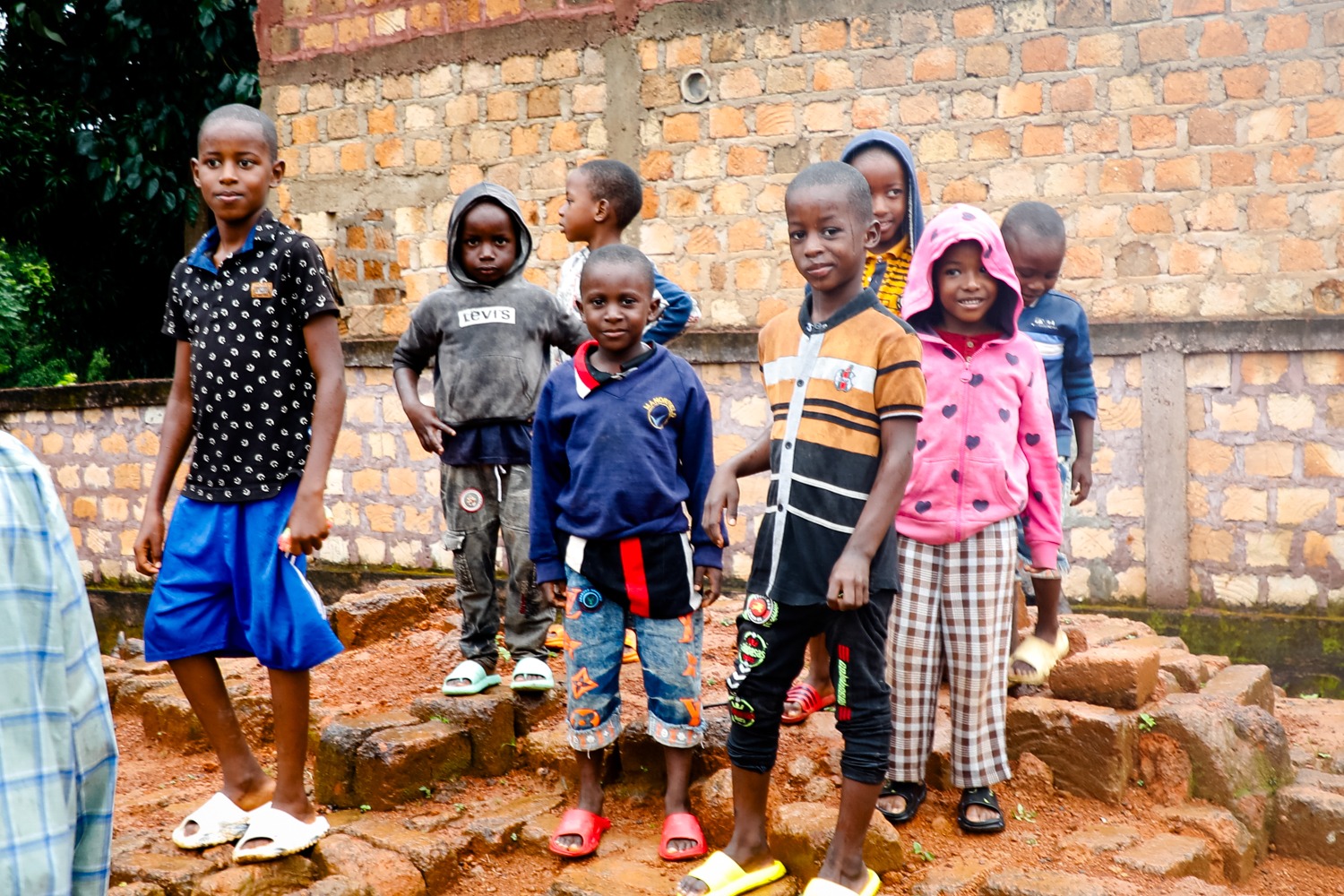
Beyond income, Fairtrade premiums have enabled villages to invest in creative, community-centered projects that bring enjoyment and utility, especially for children.
Child labor is, unfortunately, traditionally prevalent in rural farms like those in Koubia, mainly because the kids have nothing else to do while their parents work during the day. They see their parents working and tend to imitate them simply, but child labor is unacceptable for Terra and disqualifies them from Fairtrade certification.
In Koubia, one of the flagship co-ops, farmers used part of their premium to build a pedal-powered generator—a bicycle rig that kids use like a playground while charging phones for their families.
“It’s brilliant,” says Diallo. “It encourages kids to stay off farms during working hours and gives parents a free, sustainable way to charge phones in places without electricity.”
Additionally, other co-ops have started building storage facilities, communal kitchens, and school support programs, proving that even modest premiums can fuel big ideas. This has also led to increased school attendance, since the ability to pay for children’s schooling in rural villages is typically impacted by the success of fonio and other crop harvests each year. The social premium and above-market rates that Terra pays give the farmers and their families more financial security and funds to keep their kids in school, and away from the farms.
Growing More Than Grain: The Rise of the Village Economy
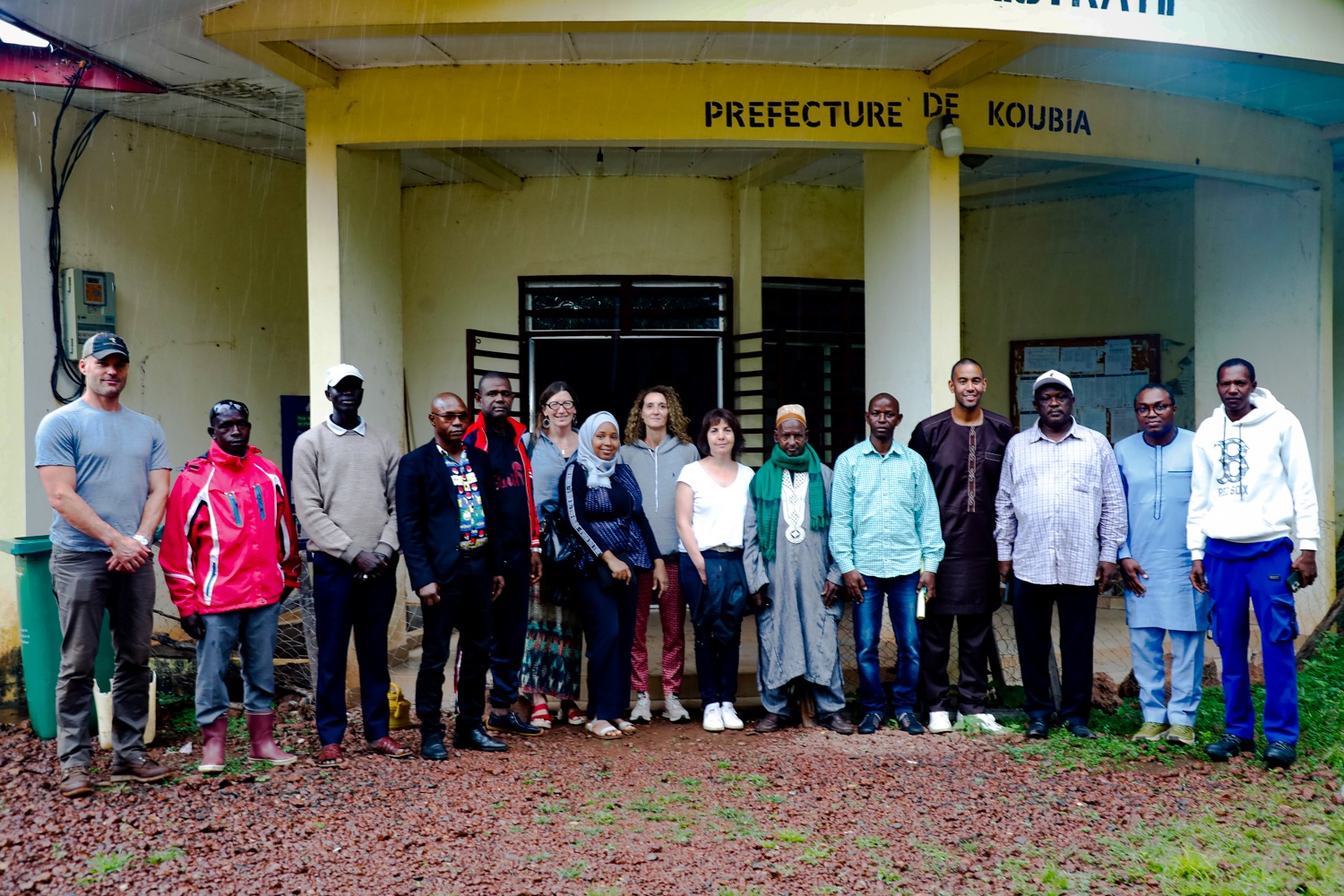
What happens when an entire village starts earning fair wages?
“You get a real economy,” says Diallo. “The fonio farmers are not only earning good wages. They still need other food and supplies, and have the money to afford them. Now, other farmers are growing tomatoes to sell to fonio farmers, and vice versa. Traders are even coming in from other villages with goods to sell, because they know these fonio farmers have more income. The money stays in the villages and is no longer left in the city.”
In short, fonio farming has catalyzed local economic systems, helping break the cycle of rural poverty. Where once cash was rare and all shopping was done in distant cities, communities are now creating and circulating their own commerce.
And with financial empowerment comes social elevation. “These farmers are now seen with respect,” says Diallo. “They’re building houses, employing neighbors. Their status has changed. It is sad from a human-to-human standpoint in many ways, but this is how society operates, and they are reaching new levels.”
Why Fonio Is Winning Hearts & Expanding Its Reach

Fonio’s current rise is about more than ethics—it’s about flavor, function, and global relevance.
This naturally gluten-free grain is high in iron, protein, and amino acids while also low in glycemic index, calories, and quick to cook. It has a light, nutty flavor and absorbs seasoning beautifully, perfect for everything from breakfast porridge to salads, baking, and beer brewing.
“It’s the superfood of superfoods,” says Diallo. “There’s no other grain like it. It has many applications, so all that food brands and manufacturers have to do is experiment with it. And as for consumers, eating healthy is no longer just a Western trend; it is global. Everyone wants to eat healthier, and fonio has all the nutritional elements you could want from such a small grain.”
Fonio is also a climate-smart crop that requires very little water and grows well in poor soils without chemical inputs. It doesn’t deplete the earth and doesn’t crowd out other plants, making it a model for sustainable agriculture in a warming world.
Disrupting the Status Quo: Breaking the Fonio Monopoly
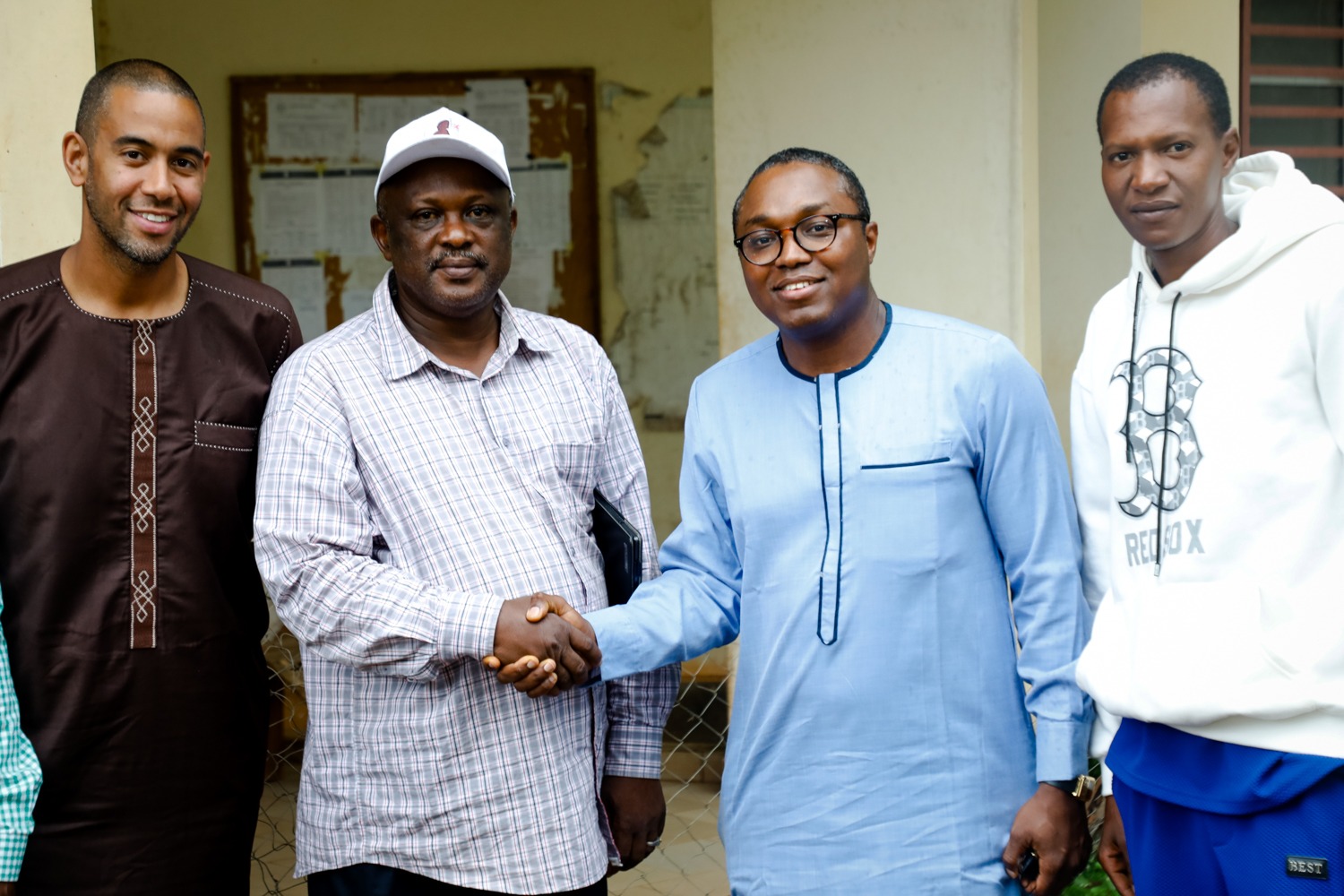
Before Terra’s arrival, Guinea’s fonio market was largely controlled by one small company that sold fonio at up to five times the local price. Due to a lack of competition in the region, these processors, the sole recipients of foreign DFI funding, controlled the supply chain and priced out locals. This resulted from their speculation, purchasing fonio cheaply at the harvest, sitting on their stockpile, and then reselling it during the dry season at unreasonable prices.
But in 2023 and especially in 2024, the market changed.
“We told them: We’ll buy all the fonio if we have to, and we’ll sell it at a fair price,” says Diallo. “And they had no choice. In 2024, competitor prices dropped to less than 2x the local rate for the first time. We expect that to reduce even further in 2025.”
That price correction was a major win for consumers and farmers alike, and it happened because Terra wasn’t just exporting grain. With our partners and co-ops in Guinea, collectively, we were rebalancing the system.
Scaling for Impact: The 2025 Vision
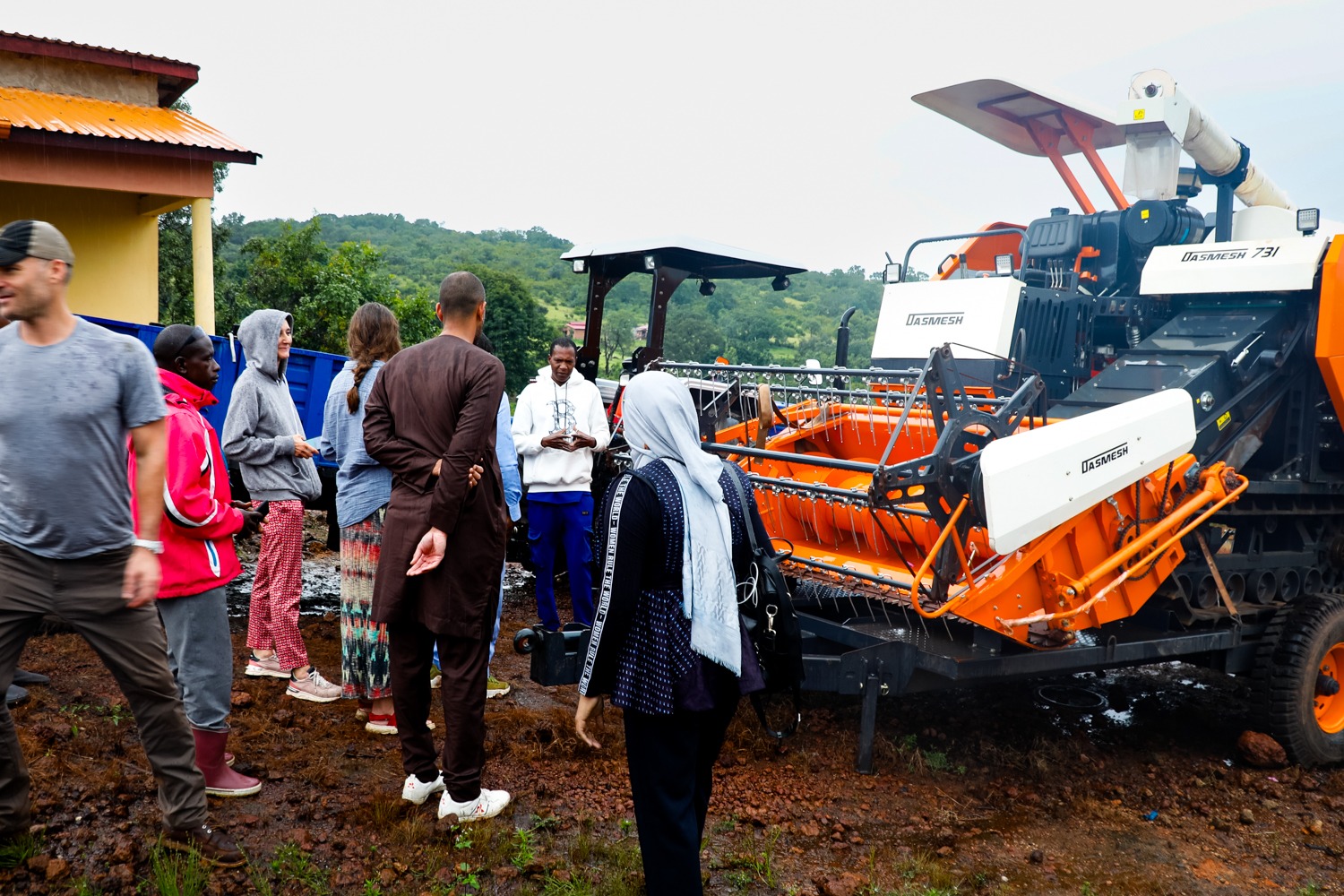
With the success of 2024 behind us, our sights are now set on an ambitious target for 2025: to produce 1,500 metric tons of fonio in Guinea.
That’s nearly double 2024’s harvest. But more importantly, it means:
- Expanding farmer participation from 1,200 to 1,500+
- Purchasing more threshers and renting tractors for larger-scale farming
- Hosting regular training sessions focused on efficiency and sustainability
- Bringing more co-ops into full Fairtrade certification
“Our goal is to increase not just volume, but value per hectare,” says Diallo. “We’re helping farmers double yields without doubling labor. Once we improve efficiency through better farming techniques and processing machinery, we can expand the amount of land our co-ops are farming on.”
We believe the global market is ready for fonio. As chefs, food brands, and conscious consumers search for nutritious, gluten-free, sustainable ingredients, fonio is stepping into the spotlight. From our partners at RahrBSG and Brewgooder to influential voices such as Bill Gates and Forbes, the world is starting to see the enormous impact of this tiny grain.
